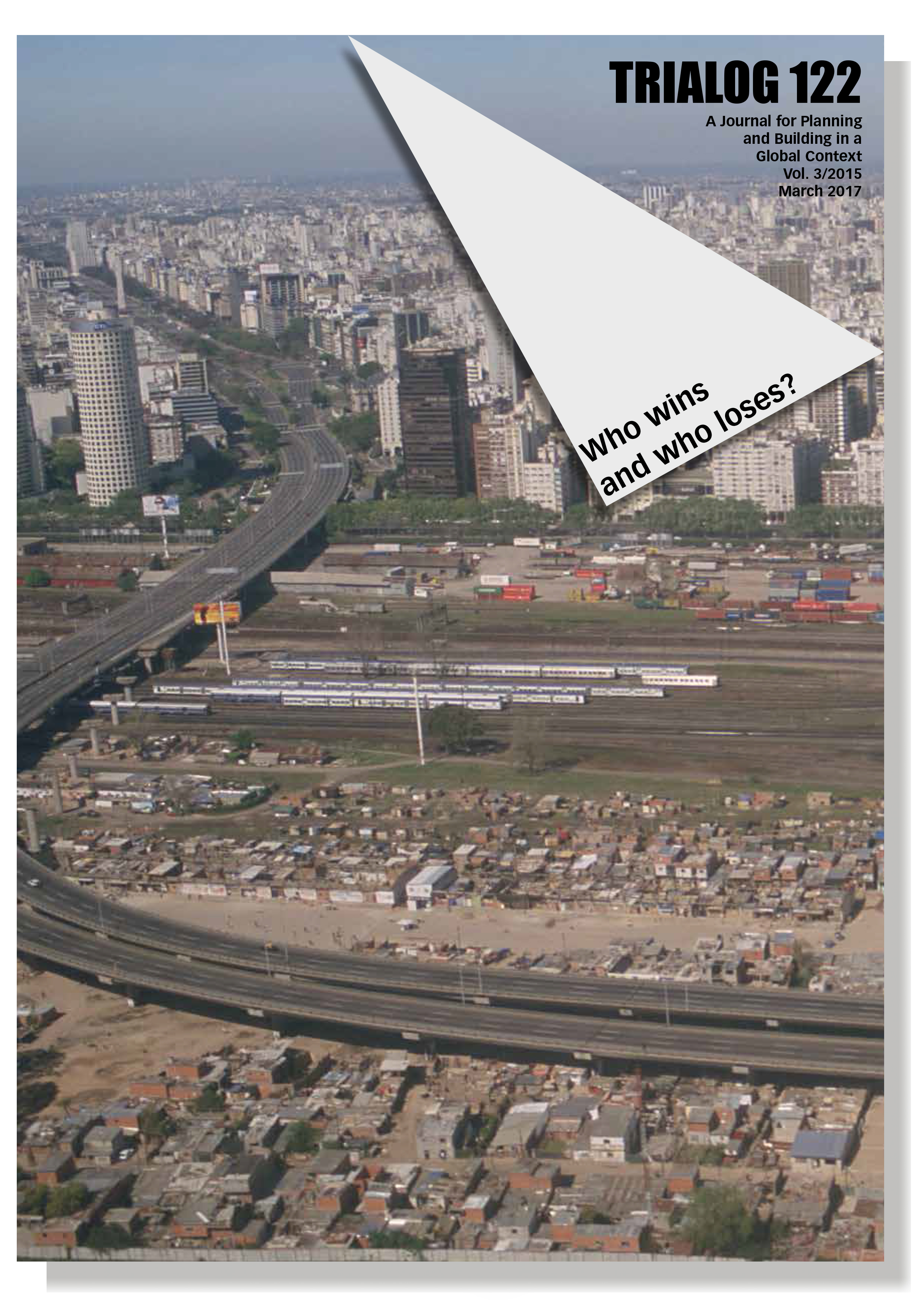JOURNAL, 2017
Hassan Elmouelhi, Mohammed Alfiky, Lukas Born, Philipp Misselwitz, Mohamed Salheen
Who wins and who loses?
Development priorities in Cairo informal areas. Planning, Realization and Local Perceptions
The article describes the research project DEVEPER that is conducted by Habitat Unit - Berlin Technical University and IUSD - Ain Shams University on development priorities in Cairo’s informal settlements before and after 2011 political changes. The congestion and urban deterioration in Cairo’s vast informal settlements (ashwa’eyat) remain among the biggest challenges in Metropolitan Cairo after the dramatic political changes in 2011. The situation has become even more critical due to the post-revolutionary boom in informal growth while economic uncertainties threaten the poorest households. The changes have led to the emergence of a multitude of new local actors beyond those sanctioned by the old regime, radically changing the power-dynamics in neighborhoods. This led to the research question how the experience of neighborhood upgrading under the old regime can be revisited and re-conceptualized as a tool to approach today’s challenges set by impoverished informal neighborhoods; How can new possibilities for participation in the new political context be embraced in order to set those priorities that satisfy and target the people’s needs? In order to be able to answer the research project’s questions, this article relies on exploring the national and international discourses that include issues of urban informality, in addition to an assessment of policies towards urban informality and of political stakeholders in the field, with special focus on Egyptian and Cairo case.
This article summarizes the findings of the first part of the ongoing research project, in which we try to understand the political context and the changes in the urban policies dealing with informal urbanism starting from the 1950s till today, including the political change of 2011. This is considered as a crucial preparation for the empirical analysis of planning stages, stakeholders, and prioritization processes. Analyzing participation methods of certain upgrading projects is underway (part 2). The case studies interventions (Part 2) are selected based on the mapping of the two informal settlements of Manshiet Nasser and Istabl Antar (Cairo) that are introduced and discussed in this article. The overall aim of this project is to help policy and decision makers as well as community representatives to forge effective partnerships and enhance success factors of future upgrading projects.

Wolfgang Scholz, Paola Alfaro d'Alençon, Genet Alem (2017) Trialog 122: Who wins who loses. Trialog e.V., Frankfurt/Main.